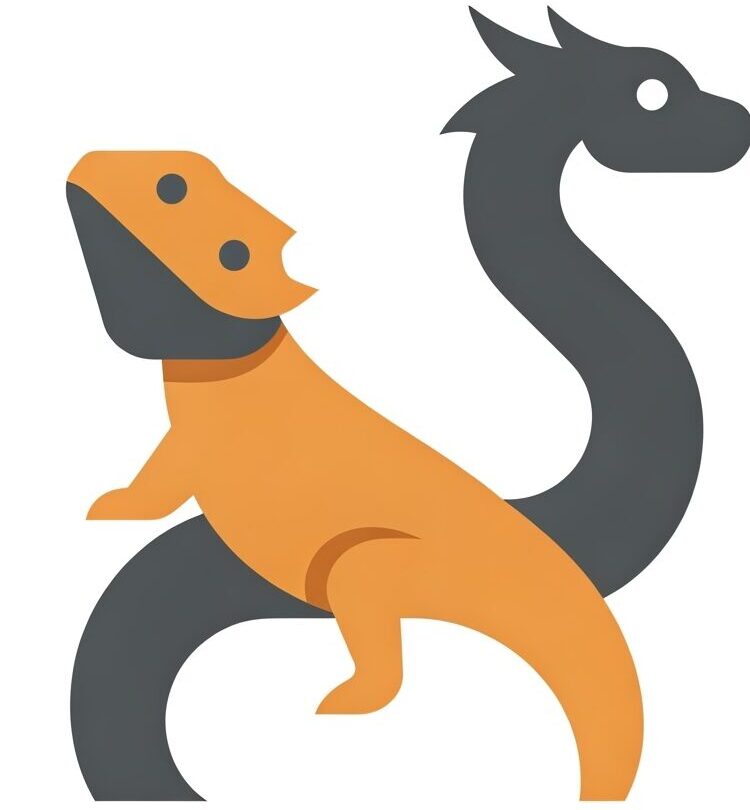Why is My Bearded Dragon Not Eating Enough? Common Causes Explained
It can be worrying when you notice your bearded dragon isn’t eating as much as usual. This article will explore some of the most common reasons why your beardie might be experiencing a decrease in appetite.
Understanding Not Eating Enough in Bearded Dragons
While a consistent and healthy appetite is a good sign in any reptile, occasional fluctuations are normal. A slight decrease in food intake isn’t always a cause for alarm, especially during certain times of the year or life stages. However, a prolonged or significant decrease in appetite always warrants investigation and potentially a visit to the vet, as it can indicate underlying problems.
Common Causes for Not Eating Enough
Here are some of the most frequent reasons why your bearded dragon might not be eating enough:
-
Environmental Issues: Bearded dragons are highly dependent on their environment.
- Temperature: Incorrect temperatures are a very common cause of appetite loss. Bearded dragons need a basking spot around 100-110°F (38-43°C) and a cool side around 75-80°F (24-27°C). If it’s too cold, their metabolism slows down, affecting their digestion and appetite. Too hot and the heat shock can also cause appetite to wane.
- Lighting: Proper UVB lighting is essential for vitamin D3 synthesis, which is crucial for calcium absorption. Without adequate UVB, they can develop Metabolic Bone Disease (MBD), leading to weakness and appetite loss. Make sure your UVB bulb is appropriate for a desert species, is new (replaced as recommended by the manufacturer), and is placed correctly (within appropriate distance).
- Humidity: While they are desert reptiles, excessively low humidity can cause dehydration, leading to a decreased appetite. The proper humidity range is about 30-40%. Extremely high humidity can also cause respiratory illness.
- Enclosure Size & Setup: If the enclosure is too small or lacks adequate hiding spots, your beardie may feel stressed and refuse to eat. Additionally, a cluttered or unsanitary environment can lead to illness, affecting appetite.
-
Stress Factors: Bearded dragons are sensitive to stress.
- New Environment: Relocating a bearded dragon to a new enclosure or home is stressful. It can take them a few days or even a week or two to adjust and start eating regularly.
- Handling: Overhandling, especially with a new dragon, can cause stress and loss of appetite.
- Noise & Activity: Loud noises, constant activity around their enclosure, or the presence of other pets can make them feel threatened and less inclined to eat.
- Co-habitation: Housing multiple bearded dragons together is highly discouraged as it always leads to bullying/stress.
-
Shedding: Shedding is a natural process, but it can be uncomfortable for bearded dragons. During shedding, they may eat less than usual.
-
Impaction: Caused by ingesting indigestible substrate (sand, small rocks, etc.) or undigested food, which leads to blocked digestive tract. Also from a lack of hydration.
-
Health Problems: A loss of appetite can be a symptom of various underlying health problems, including:
- Parasites: Internal parasites are common in reptiles and can interfere with nutrient absorption, leading to weight loss and decreased appetite.
- Respiratory Infections: Difficulty breathing can make it difficult for a bearded dragon to eat.
- Mouth Rot (Stomatitis): Painful sores in the mouth can make it difficult and painful for them to eat.
- Organ Failure: Advanced conditions of organ failure, like the kidneys, can lead to appetite loss.
-
Natural Instincts:
- Brumation: During the cooler months, some bearded dragons enter a state of dormancy called brumation, where they eat very little or not at all. This is less common in captive dragons housed indoors but can still occur.
When You Should Be Concerned
While some fluctuations in appetite are normal, be concerned if you notice any of the following along with decreased eating:
- Lethargy: Noticeable decrease in activity level.
- Weight Loss: Easily visible rib cage or spine.
- Physical Abnormalities: Swollen limbs, bumps, or skin discoloration.
- Changes in Feces/Urates: Diarrhea, constipation, or unusual color/consistency.
- Regurgitation: Vomiting or spitting up food.
- Difficulty Breathing: Wheezing, open-mouth breathing, or discharge from the nose or mouth.
- Sunken Eyes: A sign of dehydration.
What to Do Next
Here are some steps you can take if your bearded dragon isn’t eating enough:
- Double-check all habitat parameters: Ensure temperature, humidity, and lighting are within the ideal range for bearded dragons. Use accurate thermometers and hygrometers.
- Observe closely for other symptoms: Note any other unusual behaviors or physical changes.
- Reduce potential stressors: Provide a quiet and secure environment, minimize handling, and ensure they have adequate hiding places.
- Ensure proper diet and hydration: Offer a variety of appropriate insects and greens. Make sure fresh water is always available.
- Consider recent changes: Have you recently changed their enclosure, introduced new pets, or moved to a new location?
- Consult an exotic veterinarian: If the decreased appetite persists for more than a few days, if you notice any other concerning symptoms, or if you are unsure about the cause, consult a qualified exotic veterinarian. They can perform a physical examination, run diagnostic tests, and recommend appropriate treatment.
Conclusion
Understanding the complexities of bearded dragon behavior takes time and dedication. Consistent observation is key to noticing any changes early. Always remember that this information is for general knowledge purposes only and cannot replace the advice of a qualified veterinarian. Seeking professional veterinary advice is crucial for any health concerns.
